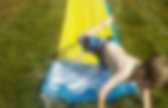

Khan Academy. Cycles of Learning. Episode 14 Podcast - "The Flipped Classroom" The State of Tech - Episode 14 - "The Flipped Classroom" Summary: In this episode we talk about the flipped classroom. We define what "flipping" your classroom is and is not, explore how to integrate the concepts behind the flipped classroom model into your curriculum, and how to leverage available technology to appropriately pair the learning activity with the learning environment. Guests also discuss their success stories, tips and tricks, tools, and hurdles they faced when flipping their own classrooms. Watch Video Episode Online: Subscribe to Video Podcast Download Video Embed Video Listen to Audio Episode Online: Subscribe to Audio Podcast Download Audio Embed Audio Show Notes (click "Read more" to see full show notes if they are not already displayed below.)Hosts Main Topic: The Flipped Classroom Useful Links Tools available for creating annotated screencasts and tutorials: * Survey is still open for Teaching Science with Technology: Link.
"Flipped classroom" teaching model gains an online community. Cambridge, Mass. - February 8, 2012 - Researchers at Harvard University have launched the Peer Instruction (PI) Network (www.peerinstruction.net), a new global social network for users of interactive teaching methods. PI, developed by Eric Mazur, Area Dean for Applied Physics and Balkanski Professor of Physics and Applied Physics at the Harvard School of Engineering and Applied Sciences (SEAS), is an innovative evidence-based pedagogy designed to improve student engagement and success. Mazur, famous for his talk titled "Confessions of a Converted Lecturer," developed the method after realizing in the 1990s that his physics lectures at Harvard, while popular, were not helping students to master the basic concepts. The PI technique relies on the power of the "flipped classroom. " Information transfer (i.e., a teacher transferring knowledge to students) takes place in advance, typically through online lectures.
"So far, the response has been remarkable," Schell said. Friday Institute for Educational Innovation - FIZZ. The Flipped Classroom: The Full Picture for Tinkering and Maker Education. If you have been following my blog series on The Flipped Classroom: The Full Picture, you know that I am using this opportunity, given all the press on flipped classroom, to discuss a model of teaching and learning based on experiential education.
It is a model in which authentic, often hands-on, experiences and student interests drive the learning process, and the videos, as they are being proposed in the flipped classroom discourse, support the learning rather than being central or at the core of learning. The idea of experience being core to learning has been discussed by Dale Dougherty, the publisher of Make Magazine, in the context of Maker Education: I see the power of engaging kids in science and technology through the practices of making and hands-on experiences, through tinkering and taking things apart. Schools seem to have forgotten that students learn best when they are engaged; in fact, the biggest problem in schools is boredom. Experiential Engagement: The Activity.